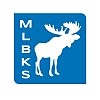The General Ledger (G/L) Reconciliation report is extremely useful for locating posting errors. The report displays imbalances between the various sub-journals and your general ledger. Your general ledger is the information that appears on your balance sheet or income statement. So, if the G/L Reconciliation report shows value in Differences column for your general bank, the figure that appears on your balance sheet will not be the same figure as your bank journal or your bank reconciliation.
To locate the error, run the reconciliation report on a date half way between now and your last closed month. If nothing shows up in the Differences column, the error occurred closer to today’s date. If a difference is displayed, the error occurred closer to the closed month. Repeat, cutting the time in half until you have located the date the error occurred.
Assume you are looking for a $250 error in the general bank. Run your general bank journal on the error date, and examine each $250 entry, making sure it was entered properly. You can also check for general ledger adjustments. This could also be two errors, $350 positive and $100 negative.
Maintaining your general ledger in balance on a regular basis can save you a lot of work. Having to go back and open closed months to correct errors takes extra time. I recommend placing the G/L Reconciliation button on your End of Month/Year Quick Step page, and using it before you do your monthly bank reconciliations.
Be aware that if you have never done a G/L Reconciliation, and you have 10 or 15 years of data, you will not be able to correct some of the older errors using conventional methods. Upgrades to the PCLaw program cut off access to some older entries.
In addition to helping my regular clients, I am happy to assist anyone on a consultancy basis, if they need help correcting errors in their General Ledger Reconciliation report, or anything else.
As always, I invite your comments and suggestions for future posting topics. Next week – End of Month (EOM) Reports.
Clyde

MLBKS Ontario PCLaw Bookkeeping: A bi-weekly blog written especially for small firms and solo-lawyers practicing in Ontario, and their bookkeepers. While some topics will be of general interest, the target audience are those who use PCLaw on a regular basis. The focus will be the practical use of PCLaw, especially in relation to the Law Society of Upper Canada's Bookkeeping Guide, trust transactions, and spot audits. Your host: Clyde McDonald - Muskoka Legal Bookkeeping Services
No comments:
Post a Comment
I welcome any comments or feedback.
Do you have a question? Do you have a topic for a future article?